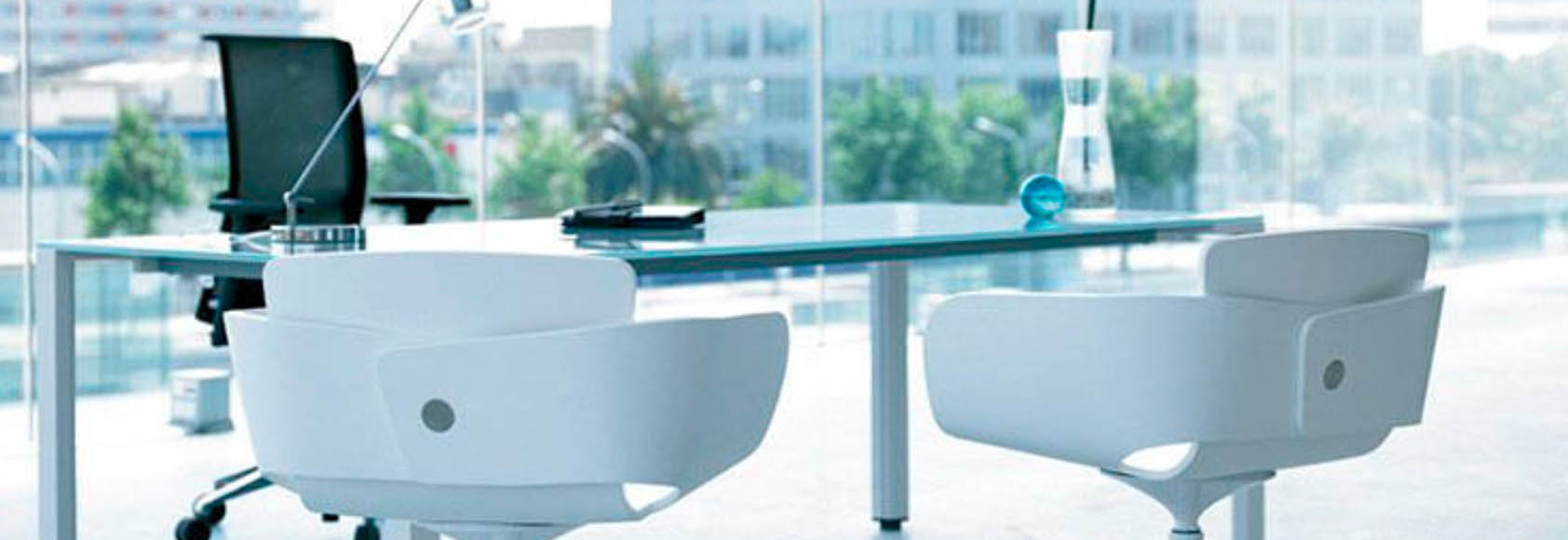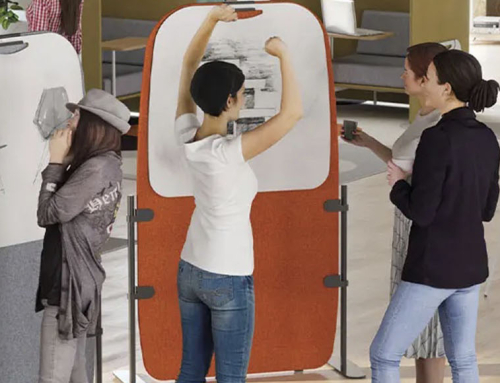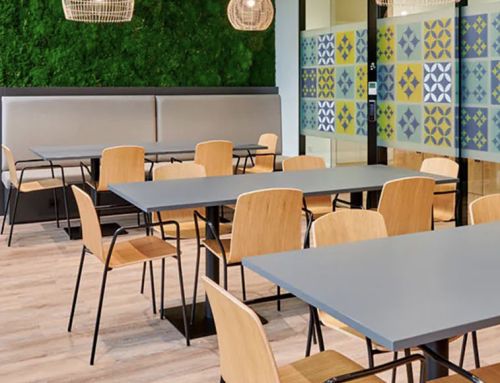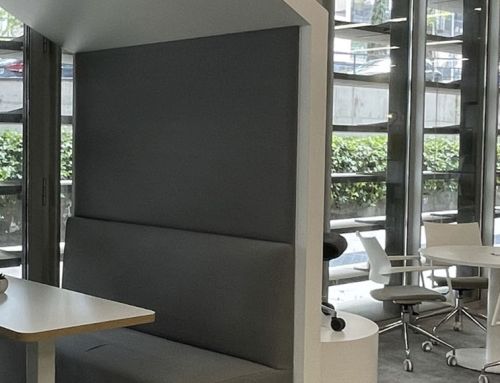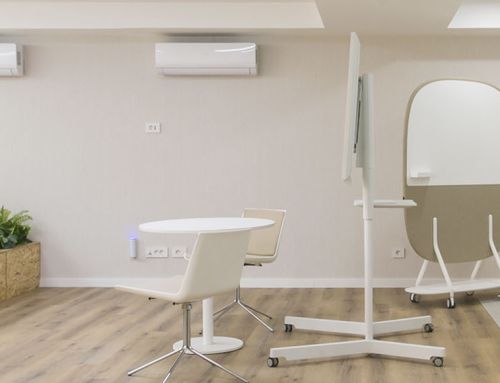Betting on sustainable offices not only contributes to caring for the planet, but at the same time favors the well-being, creativity and productivity of workers. Various studies show that employees who work in sustainable offices are happier and perform their functions better.
When we speak of sustainable offices, we refer to those that minimize environmental impact and at the same time take care of people’s health. The possibility of working in a healthy space, both physically and emotionally, is more important today than ever.
When we are not talking about sustainable offices …
Some of the dangers related to unsustainable offices are known, mainly the quality of the air breathed in closed environments, which is often more harmful than that of the air in large cities.
Offices often incorporate many elements that seriously harm our well-being and the environment. The air you breathe, the lighting, the noise level, the materials used … often create a harmful and unhealthy workspace.
If the workplace is sick, the people who work there will feel bad too
Multiple elements that can harm health are hidden in the offices. Among the most classic, we can mention germs, fungi, mites and a long etcetera, which can cause eye and skin irritations, as well as respiratory and stomach diseases.
No less dangerous are the chemicals present in the work environment: solvents, cleaners, paints, etc. As well as some of the materials – fortunately every day less common in modern construction – that appear on the high danger lists.
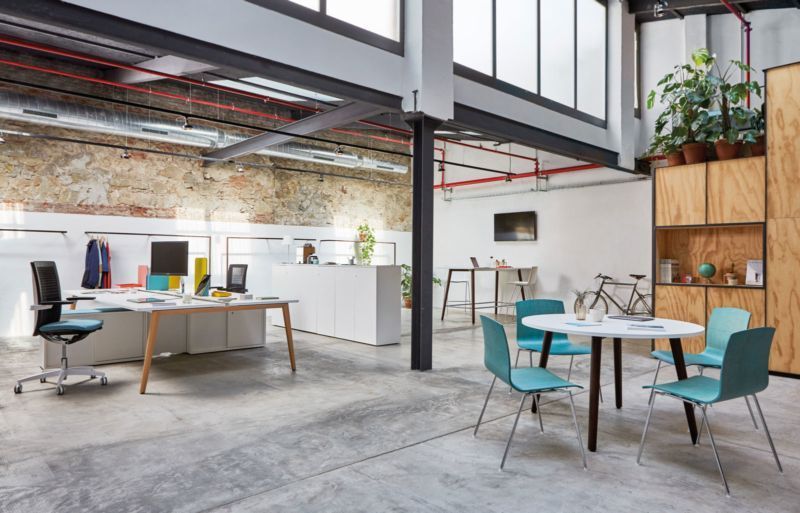
Towards sustainable offices, a path of no return
Many things have to change if we want our quality of life to improve and that we can talk about sustainable offices, and the main step is to start worrying about the future of our planet. This means making a rational use of its natural resources, and becoming aware that the use of materials that are harmful to the environment seriously harms both people and the environment.
The next step will be to adopt the possible solutions that can help us make our workplaces sustainable, healthy and green offices.
You can begin to walk that path towards sustainable offices incorporating many concepts contributed by Geobiology and Bioconstruction, which address issues related to energy saving, air renewal, choice of materials, recycling of waste, etc.
Benefits of sustainable offices
Sustainable offices are healthier, of course. But they are also more profitable for companies, since in addition to a very considerable saving in energy consumption, a healthy space increases the productivity of workers.
Indeed, in the first place, the correct analysis of factors such as temperature, the ergonomics of the position, the quality of the air, the light, the noise level … prevents many sick leave. Second, these factors play a major role in people’s moods, which is directly related to their ability to concentrate, their disposition towards work, etc.
Guidelines for designing green and sustainable business offices
When can we talk about green and sustainable business offices? In an attempt to synthesize we can present the following guidelines:
- Integration into your environment
The constructions should be carried out taking into account the place where they are going to be located, ensuring their integration within the environment.
- Location
Avoiding the proximity of sources of pollution and the destruction of the environment.
- Health and ecology
Materials and objects selected based on their proven harmlessness to the health of users and their low ecological impact.
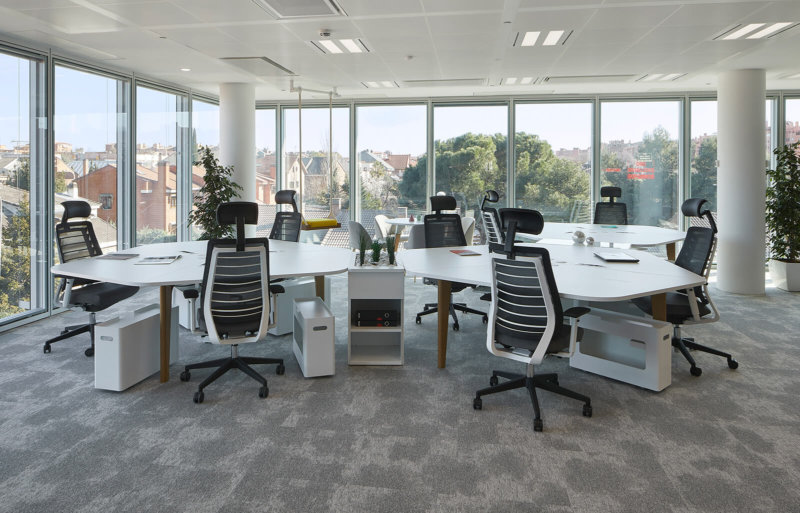
- Harnessing solar energy
When designing sustainable offices it is very important to study the distribution of space and the orientation of the building, in order to adopt a solution that allows us to make optimal use of solar energy.
It is important that the building is protected from the harsh hours of the sun, but that it can provide natural lighting, more beneficial for life and work, as well as improving the interior thermal comfort.
Poorly designed lighting in work environments produces inattention, discouragement, depression, irritability, fatigue and stress, which can lead to accidents, poor performance and sick leave.
It is important to establish adequate maintenance programs: cleaning of the luminaires, periodic change of bulbs, etc.
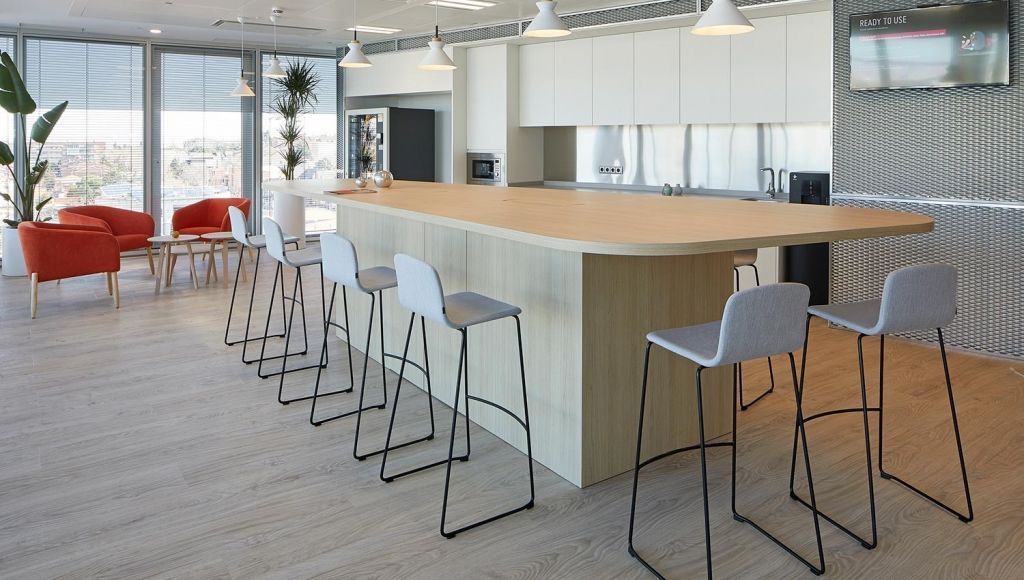
- Energy efficiency
One of the fundamental criteria that must be taken into account in sustainable offices is that of energy saving, which must be approached from a double front. On the one hand, at the time of planning the work using the criteria of bioclimatic architecture. On the other hand, when evaluating consumption and the alternatives we have to reduce the emission of toxic substances in the atmosphere that are produced when energy is obtained from fossil fuels.
- Bet on renewable energies
Good insulation is essential to improve energy efficiency. In addition to spending as little energy as possible, it must be generated by renewable energy systems, such as solar panels.
- Adequate ventilation
To avoid the presence of different pollutants in our environment, which can harm our health.
- Natural materials
Construction materials potentially dangerous to health or the environment should be avoided or minimized.
- Construction waste
If our goal is to work in sustainable offices, it is necessary to reduce the waste that originates, and encourage its recycling.
- Rational water management
Responsible use of water is recommended through the use of control mechanisms and saving habits, such as the installation of efficient sanitary equipment.
- Use of indigenous materials
If these materials are used, the buildings are integrated into the environment and also the impact derived from the transport of material is reduced.
- Reduce, reuse and recycle
Every day we generate more garbage, thus contributing to waste becoming a big problem, especially when it comes time to get rid of it: if we burn it, it pollutes the air; if they are buried they pollute the soil; and if they are thrown into seas or rivers, water.
There are several ways to reduce its impact, but any measure will not be really successful if the flow of materials from their source is not diminished. This means that good waste management unquestionably involves its reduction, which entails, at the same time, the reduction of the raw materials that we extract from Nature.
Reducing consumption, increasing the life of products, reusing them and incorporating clean production systems are essential actions to achieve a true reduction.
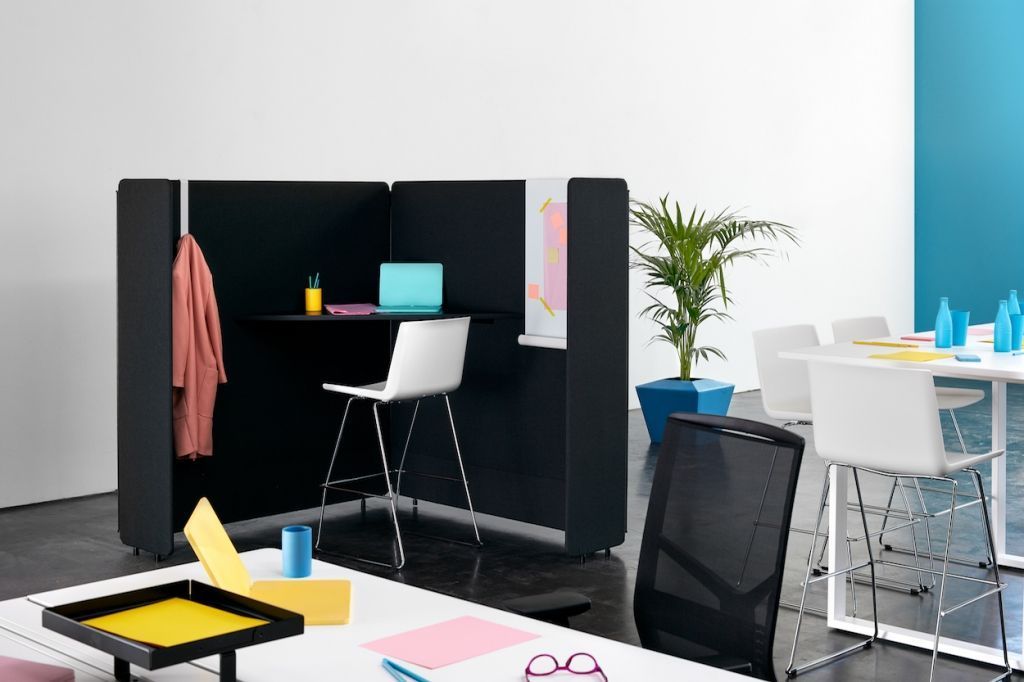
- Reduce noise pollution
Noise is one of the most pervasive forms of pollution and a potential health hazard. For example, 80 decibels is the noise level in an office with people, and if we continuously expose ourselves to that level it can damage hearing.
The World Health Organization (WHO) estimates that the threshold of 55 dB should not be exceeded during the day so that the body does not suffer alterations.
A noisy environment can cause irritability and discomfort, leading to stress, headaches, and fatigue. Likewise, it can reduce people’s ability to concentrate and generate states of dissatisfaction.
In an office it is recommended to acoustically isolate noise-generating equipment, such as printers. If the office is acoustically polluted, serious thought should be given to its isolation. There are, for this, different products: thermo – clay, cork, cellulose fibers, etc., which are also respectful with the environment.
In addition, it is necessary to analyze what level of privacy each job needs, which will be determined by the type of activity carried out by each person. Thus, for example, a telephone service post, or call center, needs a higher level of sound insulation than others. Your privacy needs are easily solved with the right choice of architectural panels or modules.
- Biophilic architecture
Biophilic design is becoming an increasingly common trend in today’s offices. It is about incorporating elements of nature in workspaces, specifically in architecture and decoration.
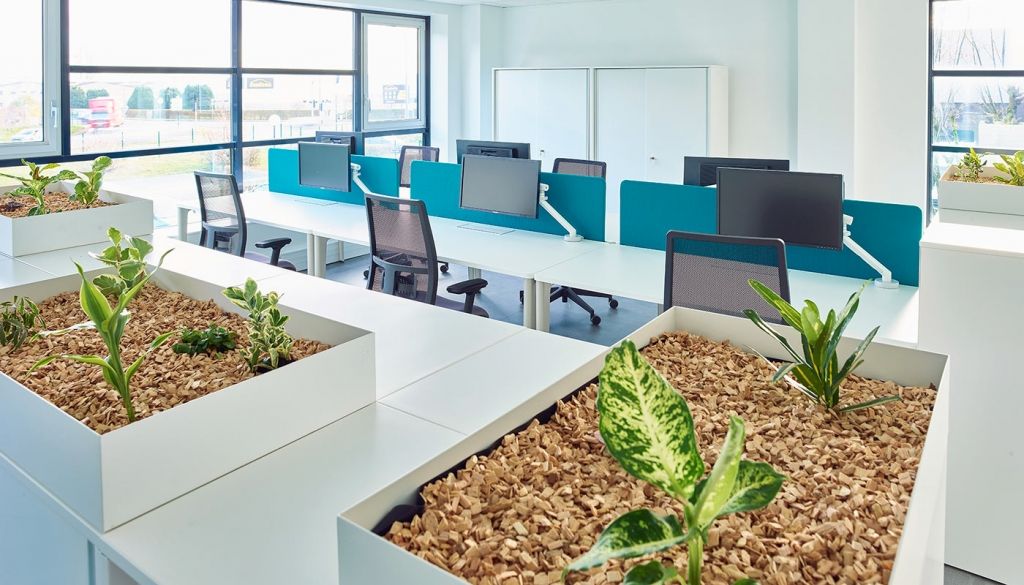
- Thermal comfort
For us to talk about sustainable offices, a comfortable thermal environment must be sought for most of the people who work inside. The most suitable temperature ranges between 18 and 20ºC. We must avoid high temperatures, and we must avoid a constant temperature since our body needs temperature changes. The air must be fresh, with an adequate level of humidity, and free of suspended dust.
The energy consumption of maintaining indoor environments in adequate conditions is the most important energy expenditure in buildings, and causes one of the greatest impacts on the environment.
Green and sustainable business centers opt for the maximum possible use of the sun’s heat, which means a significant reduction in energy consumption. Other measures can be directed towards the use of renewable energies.
On the other hand, to achieve thermal well-being it is essential that the facades, which capture solar energy, reach the maximum thermal capacity. In addition to properly maintaining the facilities, checking and cleaning themselves from time to time.
- Bet on ecological design. Ecodesign
Select products and suppliers that are respectful with the environment, from their own design.
Ecodesign is a whole business philosophy and a special way of producing. Ecodesign is applying environmental criteria to all phases of the product’s life cycle, from the extraction of raw materials to their disposal or recycling, going through the entire production process.
Ecodesign at Ofita
Ofita is a benchmark in ecodesign in Spain. Already In 2000, when practically no one in the sector was talking about this issue, Ofita participated in the Ecodesign project, the objective of which was to reduce the environmental impact in the design and manufacture of industrial products.
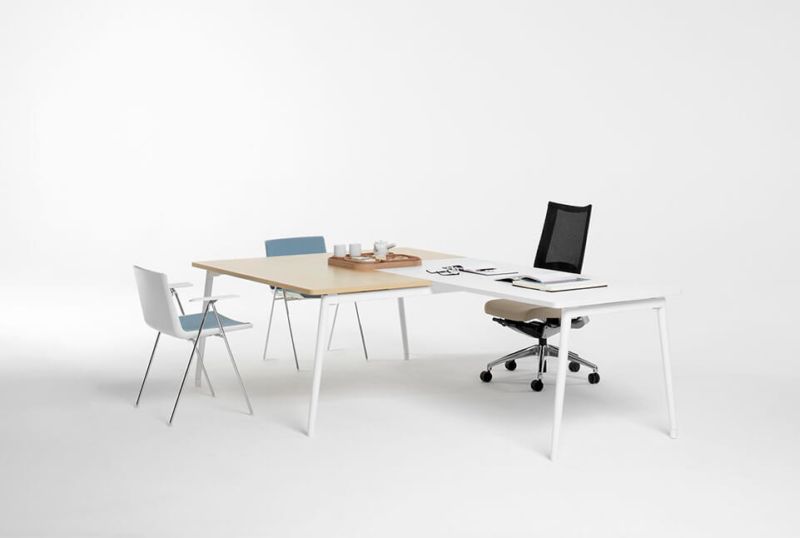
Within the framework of this project, it analyzed the materials and processes used in its products, and sought and incorporated new, more ecological alternatives. As a result, for example, with one of its new tables the environmental impact was reduced by 29.5% compared to another recent model.
Since then, ecodesign and sustainable manufacturing under the most rigorous quality standards have been key in Ofita’s production process: it authenticates the origin of the woods used in its office furniture and has the most demanding certificates, such as ISO 9001 in manufacturing quality and continuous improvement of processes, ISO 14006 in eco-design and environmental improvement of products, ISO 14001 in clean production and environmental protection … In 2019, Ofita became the first Spanish company in the office furniture sector with the certification LEVEL® sustainability level 2.
LEVEL® is the first European certification that covers all relevant aspects of the sustainability of a product. It is based on the sustainability standard developed by the Fédération Européenne du Mobilier de Bureau (FEMB).
